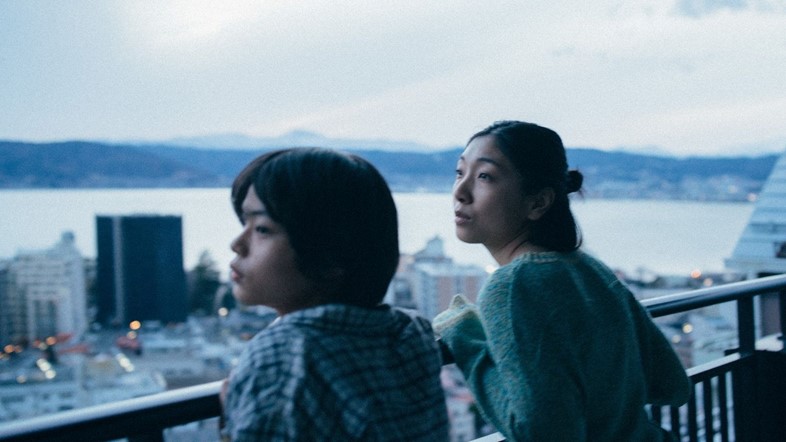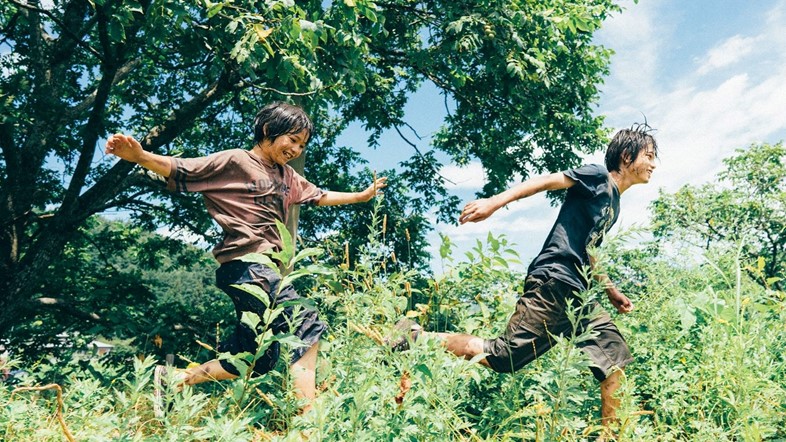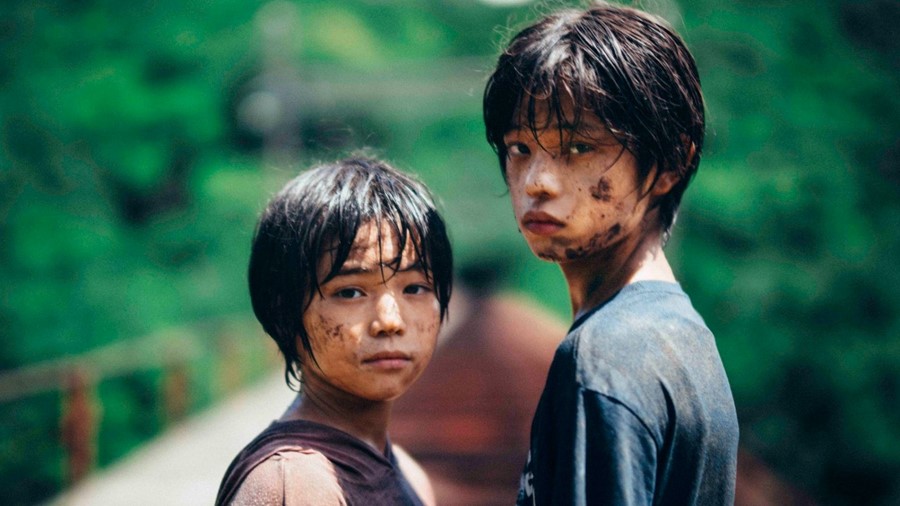The Japanese auteur behind Shoplifters and Broker talks about his new film Monster, and working with the late composer Ryuichi Sakamoto on his last-ever soundtrack
If you haven’t seen Monster yet, I advise you not to read anything about it in advance, including this interview. Layering twist upon twist, Hirokazu Kore-eda’s heartfelt coming-of-ager is a knotty story about misdirection that relies upon viewers being repeatedly taken aback by their false assumptions. After all, what starts as a combative story about a seemingly violent teacher ends up revealing itself as a tender depiction of two young boys around the age of ten confronting their possible homosexuality. “You have three chapters where things become clearer as you go on,” says Kore-eda, 61, speaking through an interpreter in February. “We wanted the viewer to have a limited amount of information to begin with, and then you realise you’ve been seeing things wrongly.”
At first, Monster revolves around Saori (Sakura Ando), a concerned mother who’s convinced that her son, Minato (Sōya Kurokawa), is being victimised by a teacher, Hori (Eita Nagayama). In the film’s middle section, though, the first act is replayed from the POV of Hori, a sensitive man who suspects that Minato is, in fact, bullying a classmate, Yori (Hinata Hiiragi). Both adults turn out to be vastly wrong. “It’s true, there aren’t many films about the sexuality of children around this age,” says Kore-eda. “But that’s not the reason I wanted to make it. That’s one of the themes. For me, it’s more about the difficulty of understanding other people, and the gaps that can cause between us.”
The Japanese auteur behind After Life, After the Storm, and Still Walking, Kore-eda is one of the biggest names in world cinema: a Palme d’Or winner for Shoplifters; a Queer Palm winner for Monster. After shooting The Truth in France and Broker in South Korea, though, Kore-eda made a return to his home country with Monster, a movie that’s written solely by Yuji Sakamoto. As the film marks Kore-eda’s first feature without a screenplay credit since 1995’s Maborosi, I ask if he was ever concerned that, given the themes, he wasn’t the best person for the job.
“Well, it actually happened the other round,” says Kore-eda. “The writer and the producer had the plot and approached me for it. When I read it, I wanted to make it, but thought I needed to do some research into the LGBTQ side, and that I’d need to talk to some experts. It was Covid, which meant I had more time.” While the adults believe Minato and Yori are sworn enemies, the film’s third act replays events from Minato’s perspective: the boy, who’s surrounded by homophobia, is overwhelmed by his romantic feelings towards Yori; the pair run off together in the night amidst heavy rain, both wondering if the water will wash away their emotions. Before Kore-eda consulted with LGBTQ+ groups, though, Monster unfolded differently.

“In the original version, Minato was more aware of his sexuality,” the director explains. “Although we never used the word ‘gay’, he was actually trying to hide it from his mother. He had a photo on his phone of a woman in a bikini, and he would leave it in his bedroom so that his mum would see it. He was trying to camouflage his sexuality. An LGBTQ support group read it and said that while it was plausible, it was a little confused: he didn’t seem to understand his sexuality, but, on the other hand, was trying to hide it. They said we should go with one or the other. So we went with the stage where he’s still not really sure of his sexuality, which is why he feels like he might be a monster – because he doesn’t know or understand himself; he has no name to put to this feeling.”
As usual, Kore-eda serves as the film’s editor, and he describes to me how the three sections wildly differ in every manner, from the pacing to the mise-en-scène. In the first chapter, for instance, the camera is restricted to Saori’s viewpoint, meaning that the viewer is oblivious to most of the events involving Hori and Minato. “But I said to Kondo-san, the director of photography, that, in the last chapter, the camera moves with the children, and we see their world. The camera work and rhythm changes. The breathing pattern changes.”
The evolving emotions are illustrated, too, by a plaintive, melancholic score by Ryuichi Sakamoto, the legendary composer who passed away at the age of 71 last year. Kore-eda had first asked Sakamoto to score a film ten years ago (“a historical drama about kabuki that was never made”); with Monster, he was unaware it would be Sakamoto’s final ever soundtrack. “When I went to Suwa in Nagano Prefecture, I was looking over the big lake that you see in the film at night,” says Kore-eda. “It came to me that Ryuichi Sakamoto’s music would be perfect. It was six months before we started filming. I just believed in this instinct that I had.” As Sakamoto was in poor health when playing the piano, his heavy breathing is also picked up by the microphone. “It feels more than a melody – it feels like the sound of nature. It suits the story better: the sounds of fire and wind; the toys the boys make that whirl around and make whistling sounds.”

Right now, Kore-eda is editing a seven-episode TV series that he directed from August to December last year. Otherwise, Monster, which I’ve seen twice, certainly benefits from repeat viewings, not just from its twisty plot structure but revisiting the moving magnitude of its final act. “It took three years to write the script,” says Kore-eda. “There were a number of different endings. For example, one version had the mother and teacher rescue the children from the train carriage. But ultimately we chose for the children to slip through the adults’ outstretched hands and actually affirm themselves at the end.”
Monster is out in UK cinemas on March 15.
